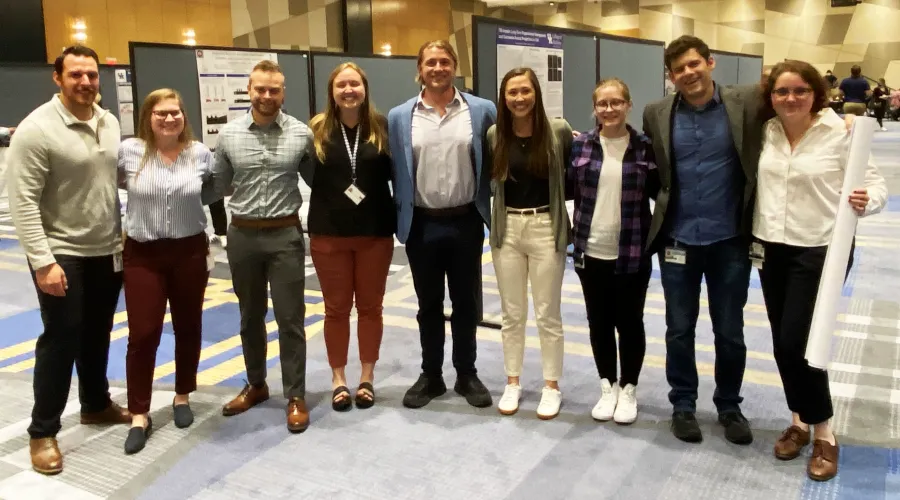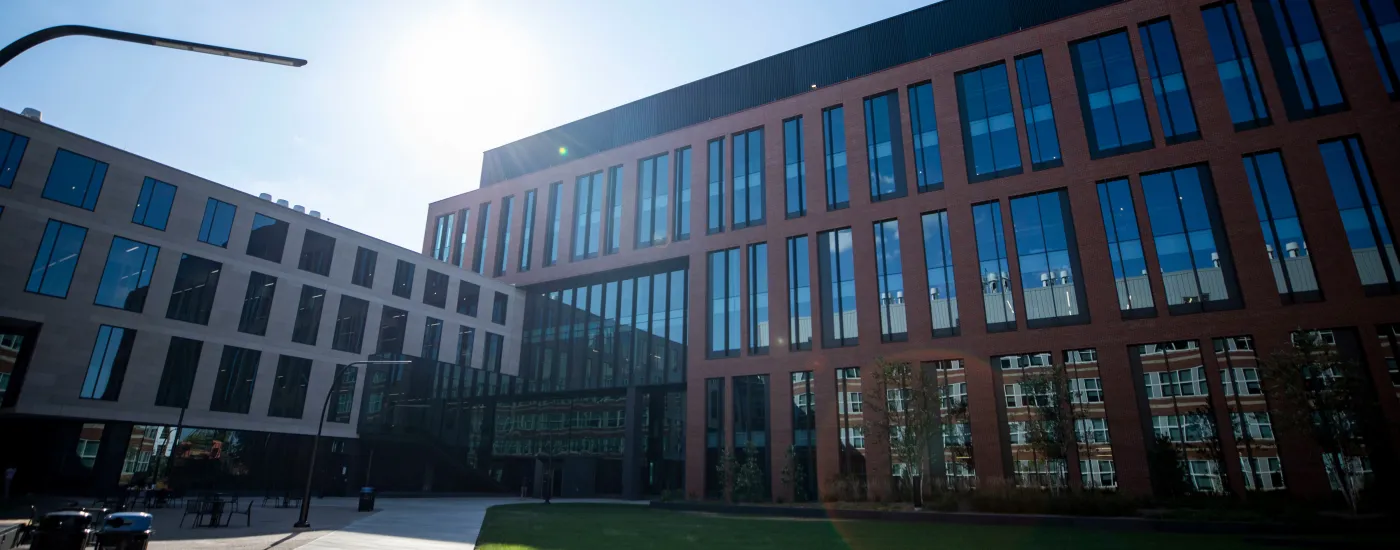
Neuroscience Graduate Program
Neuroscience is proud to be one of the few graduate programs at the University of Kentucky to be ranked within the top 20 programs at publicly funded universities nationwide (based on research dollars awarded by the National Institutes of Health). The hard work, initiative, and innovation of our faculty, postdoctoral scholars, and graduate students have been instrumental in our attaining this status. We look forward to continued success and progress by having enthusiastic, highly qualified, intellectually stimulating students join our graduate program annually.
Integrated Biomedical Sciences
To give our students the widest choice of research topics, including multidisciplinary approaches, the basic science departments in the College of Medicine (neuroscience; molecular and cellular biochemistry; microbiology, immunology, and molecular genetics; pharmacology and nutritional sciences; toxicology and cancer biology; and physiology) have joined together to develop an integrated first-year curriculum.
All entering graduate students pursuing doctoral degrees in these programs are now admitted through the integrated biomedical sciences (IBS) program, an undifferentiated first-year core curriculum designed to promote:
- Exposure to cellular and molecular concepts in the biomedical sciences
- Development of interdisciplinary approaches essential to innovative research
- Flexibility in choosing a PhD mentor among more than 175 faculty in six departments
During the first year of the IBS core curriculum, students simultaneously complete three to four laboratory rotations and participate in research seminars. At the conclusion of the year, students select doctoral programs based on research interests and mentoring relationships in one of six departments involved. The doctoral degree will be awarded from the department chosen.
Programs of Study
The department of neuroscience offers a multidisciplinary graduate program leading to the PhD degree. Combined MD/PhD programs also are available. An energetic faculty and flexible curriculum are directed toward giving the graduate competitive research and teaching credentials. Research in the department of neuroscience is largely oriented toward study of the nervous system. State-of-the-art approaches to the structure and function of neural, neuroendocrine, and reproductive systems represent particular strengths of the department.
Prospective students should closely examine the faculty research interests in order to determine whether the program fits their interests. Recent updates of the graduate program are designed to emphasize the development of independent research skills and entry into the research laboratory as soon as possible. Entering graduate students spend the first year in basic coursework of the IBS curriculum and research laboratory rotations. Advanced coursework, teaching experiences, and examinations typically are completed by the end of the second year. Thereafter, the student is primarily engaged in research. An active seminar program and opportunities for student presentations at national and international scientific meetings contribute to a stimulating environment.
Coursework
The following courses are required for graduate students who join our department:
- Advanced Neuroscience
- Introductory Statistics
The following departmental courses are typically taken by graduate students as electives, but curricula can be tailored to each student’s specific research interests:
- Neurobiology of Aging
- CNS Injury and Repair
- Mechanisms of Neurologic Disease
Financial Aid
The department pays tuition and fees for students who receive a stipend. For up-to-date costs, tuition, and fees, click here.
For 2023-2024, 12-month stipends and fellowships of up to $30,000, which also carry a waiver of tuition and fees, are available for qualified applicants. These stipends are available for students who choose to work in research labs of faculty with primary appointments in neuroscience. Support for those students who choose to work with any of the joint faculty can be sought from other sources.
For cost of attendance information, click here.
The individual research laboratories and departmental core facilities include equipment for scanning and transmission electron microscopy, autoradiography, cell and tissue culture, immunocytochemistry, radioimmunoassay, in situ hybridization, differential centrifugation, computer-based image analysis, electrophysiology, behavioral analyses, photography, and other equipment for modern cellular and molecular analyses. Interdisciplinary work is encouraged by the proximity of campus resources and the cooperative spirit of researchers at the University.
Director of Graduate Studies, Neuroscience

Richard C Grondin, PhD
Positions Held:
- Professor, Regular Title Series
- Director of Graduate Studies, Neuroscience Doctoral Program
- Director of Graduate Studies, Master of Science in Medical Sciences Program
The University of Kentucky College of Medicine
MN 210 Medical Education Building
Lexington, KY 40536
